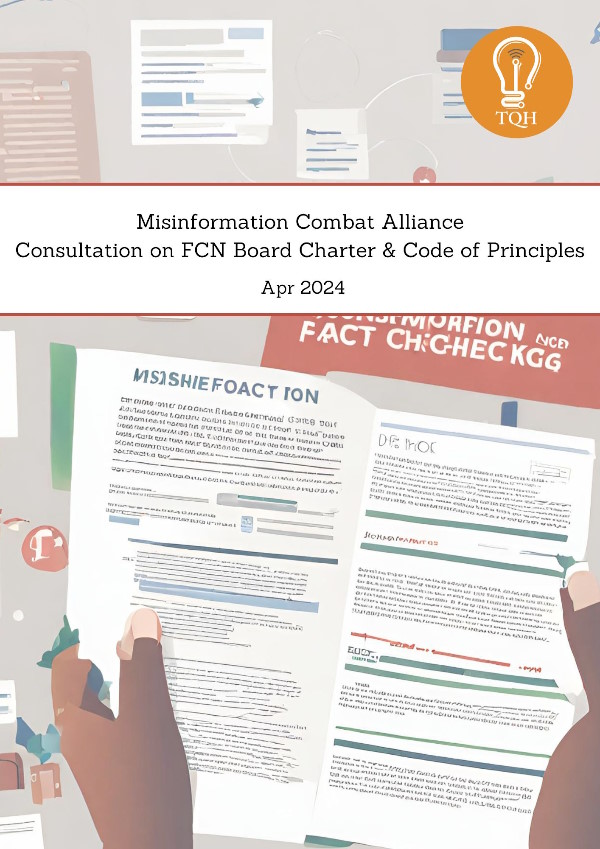Authors: Ujval Mohan, Salil Ahuja and Sidharth Deb
Published: Apr 2024

Misinformation presents a growing threat in India, with significant implications for law and order and the broader health of public discourse. The World Economic Forum (WEF)’s Global Risks report 2024 underscores the nation’s susceptibility to misinformation and disinformation, ranking it as the most exposed country to such risks.
As policymakers discuss strategies to address the inundation of misinformation in the information ecosystem, fact-checking emerges as a powerful tool in combating falsehoods. While not a panacea, it has proven effective in debunking beliefs, particularly among audiences less entrenched in partisan narratives. India benefits from a robust ecosystem of fact-checkers capable of operating in regional languages, flagging false narratives as they emerge in local discussions. Leveraging these resources could greatly enhance efforts to combat misinformation. However, it is crucial to establish and adhere to robust standards that uphold the highest levels of integrity in the fact-checking process.
In this regard, TQH welcomes the genesis of the Misinformation Combat Alliance (Alliance) – a collaborative cross-industry effort to combat misinformation in the Indian context. We believe that this initiative holds significant promise in driving a whole-of-ecosystem approach. Additionally, we believe that the Alliance would help uphold the integrity of the fact checking ecosystem in India, akin to the role of the International Fact Checking Network (IFCN) and the European Fact-Checking Standards Network (EFCN) globally.
On the occasion of the International Fact Checking Day on April 2, 2024, the Misinformation Combat Alliance, released their Oversight Board (Fact Checking Network Board) Charter and Code of Principles for public review.
The Quantum Hub (TQH) team has closely analyzed these documents and synthesized our insights into a submission. Through our submission, we attempt to provide inputs on how international frameworks may be adapted to better suit Indian realities, while creating the right impetus and incentives for all relevant stakeholders. We also suggest measures to increase the robustness of the evaluation process for verified signationaries, and optimize operations to facilitate smoother functioning for the MCA.
